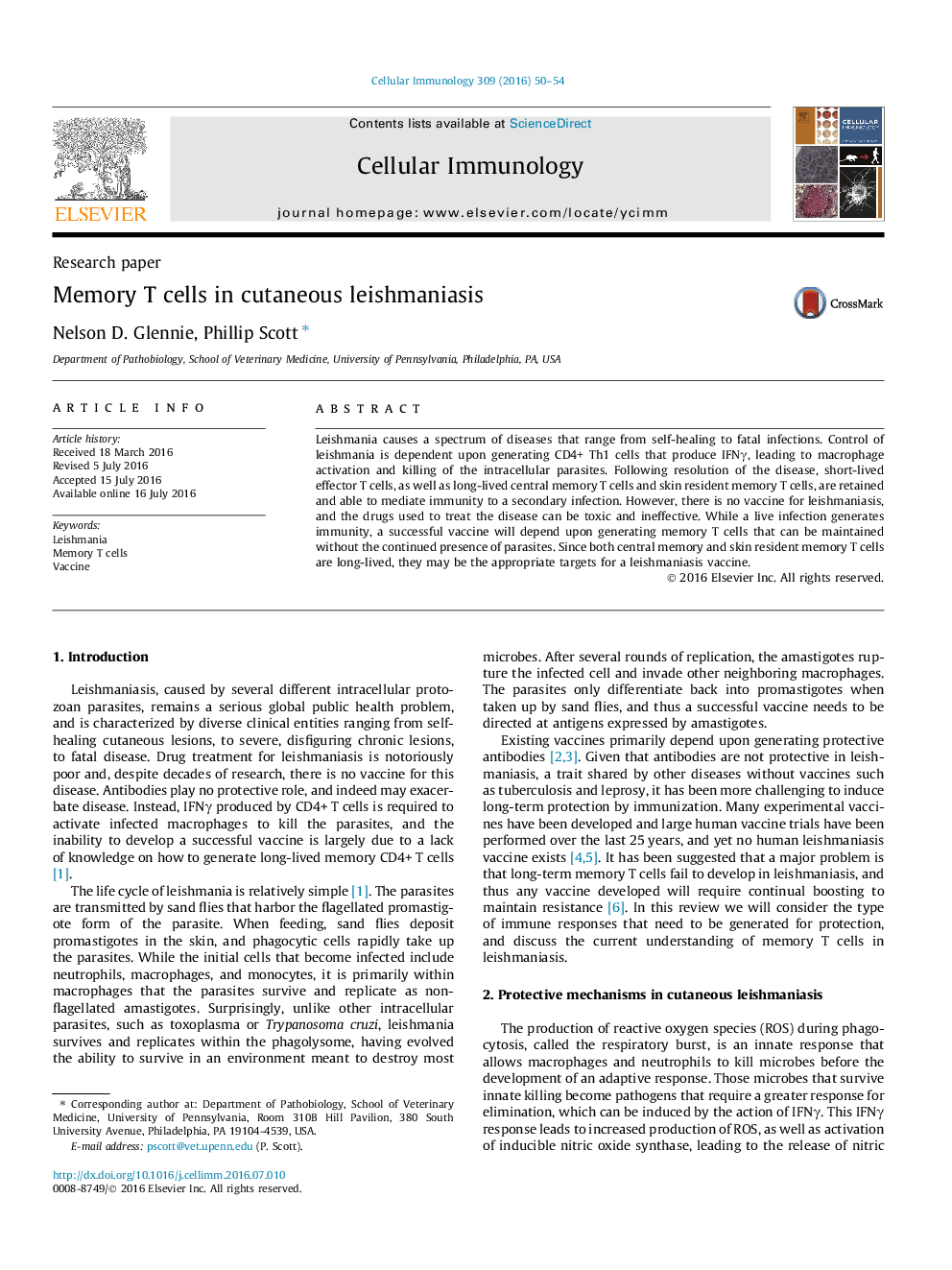| Article ID | Journal | Published Year | Pages | File Type |
|---|---|---|---|---|
| 5530668 | Cellular Immunology | 2016 | 5 Pages |
â¢Leishmaniasis is controlled by macrophages activated by IFNγ from CD4+ Th1 cells.â¢Short-lived and central memory T cells provide immunity to reinfection.â¢Skin resident memory T cells recruit effector T cells to a challenge site.
Leishmania causes a spectrum of diseases that range from self-healing to fatal infections. Control of leishmania is dependent upon generating CD4+ Th1 cells that produce IFNγ, leading to macrophage activation and killing of the intracellular parasites. Following resolution of the disease, short-lived effector T cells, as well as long-lived central memory T cells and skin resident memory T cells, are retained and able to mediate immunity to a secondary infection. However, there is no vaccine for leishmaniasis, and the drugs used to treat the disease can be toxic and ineffective. While a live infection generates immunity, a successful vaccine will depend upon generating memory T cells that can be maintained without the continued presence of parasites. Since both central memory and skin resident memory T cells are long-lived, they may be the appropriate targets for a leishmaniasis vaccine.
